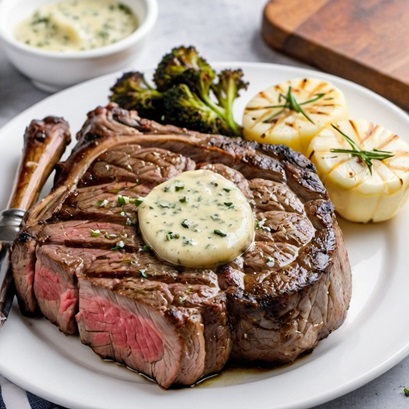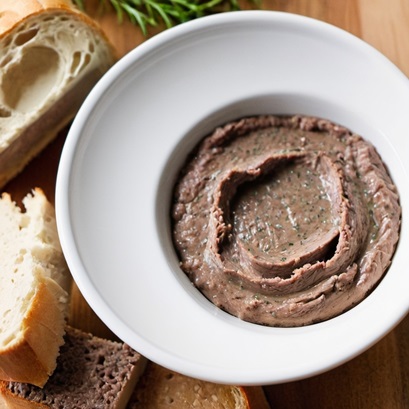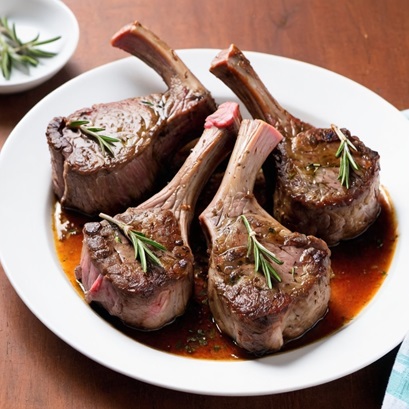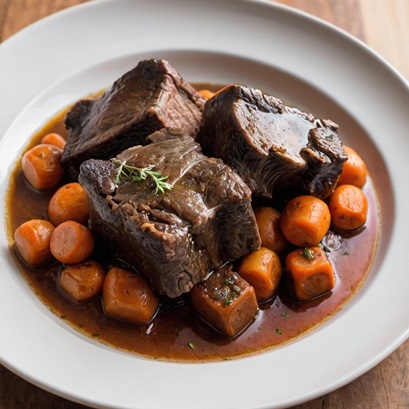The Carnivore Diet is an eating plan that focuses exclusively on animal-based products, primarily meat. It’s a no-carb, high-protein, and high-fat diet that eliminates all plant-based foods, including fruits, vegetables, grains, and legumes. Advocates of the Carnivore Diet believe that our ancestors thrived on a meat-heavy diet, and by returning to these roots, we can achieve optimal health and wellness.
Health Benefits of the Carnivore Diet
The Carnivore Diet is known for its numerous health benefits, many of which are attributed to the elimination of carbohydrates and plant toxins: (1)
1. Weight Loss and Muscle Gain
The Carnivore Diet emphasizes the consumption of protein and fat while eliminating carbohydrates. This dietary approach can lead the body into a state of ketosis, where it begins to burn fat for fuel instead of carbohydrates. Ketosis occurs because, without carbs, the body’s insulin levels drop, signaling the liver to start converting stored fat into ketones, which are used as energy.
Protein is essential for muscle maintenance and growth. On the Carnivore Diet, the high intake of protein helps preserve muscle mass, even as the body loses fat. This dual effect—fat loss combined with muscle preservation—can lead to significant weight loss and more defined muscles. Additionally, since protein has a high thermic effect, the body burns more calories digesting it, further aiding in weight loss.
2. Improved Mental Clarity and Focus
Many people on the Carnivore Diet report experiencing improved mental clarity and focus. This cognitive enhancement is often attributed to two main factors: stable blood sugar levels and reduced inflammation.
- Stable Blood Sugar Levels: Carbohydrates can cause spikes and crashes in blood sugar, leading to fluctuations in energy and focus. By eliminating carbs, the Carnivore Diet helps maintain consistent blood sugar levels, preventing these energy crashes.
- Reduced Inflammation: The Carnivore Diet removes foods that may contribute to inflammation, such as grains, sugars, and processed foods. Chronic inflammation can impair cognitive function, so reducing inflammation may lead to clearer thinking, better concentration, and improved overall brain function.
Read more:
3. Enhanced Digestion and Gut Health
Contrary to popular belief that fiber is essential for digestive health, some people find that fiber, especially from plant-based sources, can irritate their digestive system, causing bloating, gas, or other discomforts. The Carnivore Diet eliminates fiber by focusing solely on animal products, which are generally easier to digest.
- Easily Digestible Proteins and Fats: Animal-based foods like meat, fish, and eggs are composed of proteins and fats that are typically easier for the human digestive system to break down. This can lead to improved digestion, especially for those who have sensitivities to certain plant foods.
- Gut Health: Some proponents of the Carnivore Diet suggest that removing plant-based foods can allow the gut to heal from conditions like irritable bowel syndrome (IBS) or other digestive disorders. The absence of potential irritants in the diet may reduce gut inflammation and lead to more regular and comfortable digestion.
4. Anti-Inflammatory Effects
Inflammation is the body’s natural response to injury or illness, but chronic inflammation can lead to various health issues, including arthritis, heart disease, and autoimmune conditions. The Carnivore Diet may help reduce inflammation by eliminating foods that are known to be inflammatory for some people.
- Elimination of Grains and Legumes: Grains and legumes contain lectins, gluten, and other compounds that can trigger inflammation in sensitive individuals. By removing these foods, the Carnivore Diet may help reduce chronic inflammation and associated symptoms.
- Simplicity of the Diet: By sticking to a simplified diet of animal products, the Carnivore Diet reduces the intake of processed foods, sugars, and other potential inflammatory agents. This reduction can help the body return to a more balanced and less inflamed state, leading to relief from conditions like arthritis and other inflammatory disorders.
How to Start the Carnivore Diet
Starting the Carnivore Diet requires careful planning and a mindset shift. Here’s how to begin:
1. Transition Gradually
Switching to the Carnivore Diet can be a big change, so it’s often easier to transition gradually. Start by cutting out processed foods, sugars, and grains from your diet. Once you’re comfortable with that, begin reducing your intake of plant-based foods like vegetables and fruits, eventually moving to a diet that consists solely of animal products. This gradual approach helps your body adjust and makes the transition smoother.
2. Focus on Quality
When following the Carnivore Diet, the quality of the animal products you consume is crucial. Opt for high-quality, grass-fed meats, wild-caught fish, and pasture-raised eggs. These choices are not only more nutrient-dense but also free from harmful additives and chemicals often found in conventionally raised products. High-quality sources ensure you’re getting the best possible nutrients from your food.
3. Stay Hydrated
Staying hydrated is key on the Carnivore Diet, especially because the lack of carbohydrates can cause your body to retain less water initially. Drinking plenty of water throughout the day helps prevent dehydration. Additionally, since you might lose electrolytes during this transition, consider supplementing with electrolytes like sodium, potassium, and magnesium to maintain proper balance and avoid symptoms like fatigue or muscle cramps.
4. Meal Prep
Meal prepping is a valuable strategy when starting the Carnivore Diet. By preparing your meals in advance, you can ensure you always have Carnivore-friendly options on hand, making it easier to stick to the diet. This reduces the temptation to reach for non-compliant foods and helps you stay on track with your dietary goals. Preparing meals ahead also saves time and makes the transition less stressful.
Read more:
Carnivore Diet Recipes
1. Grilled Ribeye Steak with Garlic Butter

- Season the ribeye steak with salt and pepper.
- Grill the steak on high heat for 4-5 minutes per side for medium-rare.
- In a small pan, melt butter and add minced garlic. Cook until fragrant.
- Drizzle the garlic butter over the grilled steak before serving.
A classic, juicy ribeye steak grilled to perfection and topped with garlic-infused butter. The high-fat content of ribeye makes it a perfect choice for the Carnivore Diet, providing both flavor and satiety.
2. Beef Liver Pâté

- Sauté chopped onions in butter until soft.
- Add diced beef liver and cook until browned.
- Blend the cooked liver and onions in a food processor until smooth.
- Add more butter, salt, and pepper to taste, and blend again.
- Chill the pâté in the refrigerator before serving.
This creamy and nutrient-dense pâté is a rich source of essential vitamins and minerals. It’s an excellent way to incorporate organ meats into your diet, providing benefits such as improved energy and enhanced cognitive function.
3. Pork Belly Crispy Bites

- Cut pork belly into bite-sized pieces.
- Slow-cook the pork belly in a low oven (around 250°F) for 2-3 hours to render the fat.
- Increase the oven temperature to 400°F and broil the pork belly until crispy.
- Season with salt before serving.
Savory and crispy, these pork belly bites are slow-cooked to render the fat and then broiled for a crunchy finish. They’re perfect as a snack or a main dish, offering a satisfying texture and rich flavor.
4. Ground Beef & Egg Scramble

- Cook ground beef in a pan until browned, seasoning with salt and pepper.
- In a separate bowl, whisk eggs.
- Add the eggs to the cooked ground beef and scramble until fully cooked.
- Serve hot.
A hearty scramble of ground beef and eggs, seasoned with salt and pepper. This dish is ideal for breakfast or any meal, providing a balanced combination of protein and fat to keep you full and energized.
5. Lamb Chops with Rosemary

- Season lamb chops with salt, pepper, and fresh rosemary.
- Heat a pan over medium-high heat and sear the lamb chops for 3-4 minutes per side.
- Let the lamb chops rest for a few minutes before serving.
Tender lamb chops seared with fresh rosemary, deliver an aromatic and succulent dish. Lamb is a great alternative to beef, offering a unique flavor profile and a different nutrient profile.
6. Braised Short Ribs

- Season short ribs with salt and pepper.
- Sear the short ribs in a hot pan until browned on all sides.
- Transfer the ribs to a pot, add beef broth, and cover.
- Simmer on low heat for 3-4 hours until the meat is tender.
- Serve with the braising liquid.
Slow-cooked beef short ribs that are fall-off-the-bone tender, perfect for a comforting dinner. Braising allows the meat to become incredibly tender, absorbing the flavors of the cooking liquid.
7. Grilled Chicken Thighs with Skin

- Season chicken thighs with salt and pepper.
- Grill the thighs skin-side down on medium-high heat for 5-7 minutes.
- Flip the thighs and grill for another 5-7 minutes until fully cooked.
- Serve hot.
Juicy chicken thighs grilled with the skin on, delivering a crispy exterior and moist interior. Chicken thighs are a great option for those looking to diversify their meat choices on the Carnivore Diet.
Potential Drawbacks and Considerations
While the Carnivore Diet offers many benefits, it also comes with potential drawbacks:
- Nutrient Deficiencies: The elimination of plant foods can lead to deficiencies in certain vitamins and minerals, such as vitamin C, fiber, and phytonutrients.
- Long-Term Sustainability: Some people find it challenging to maintain a Carnivore Diet long-term due to its restrictive nature and social limitations.
- Social and Ethical Considerations: The diet’s heavy reliance on animal products may raise ethical concerns for some, as well as challenges in social situations where plant-based foods are predominant.
Is the Carnivore Diet Safe for Everyone?
The Carnivore Diet may not be suitable for everyone. Individuals with certain health conditions, such as kidney disease or gout, should consult with a healthcare provider before starting the diet. Additionally, those who are pregnant, breastfeeding, or have specific dietary needs should approach the Carnivore Diet with caution and seek professional guidance.
Conclusion
The Carnivore Diet is a unique and controversial eating plan that focuses entirely on animal-based products. While it offers numerous health benefits, including weight loss, improved mental clarity, and enhanced gut health, it also comes with potential risks and challenges. If you’re considering starting the Carnivore Diet, it’s essential to weigh the pros and cons and consult with a healthcare provider to ensure it’s the right fit for you.


